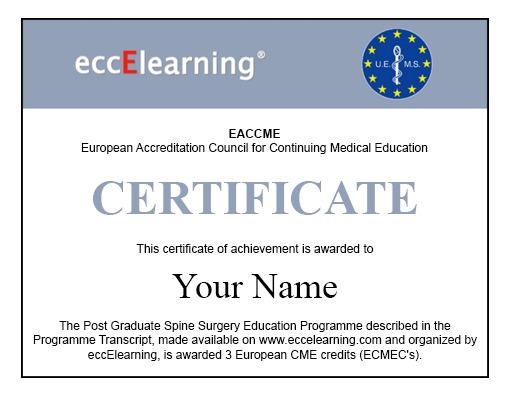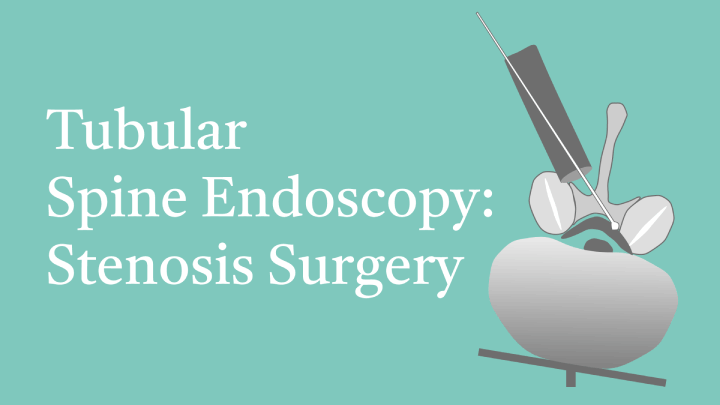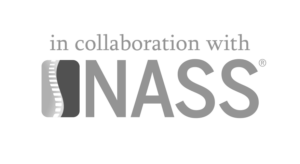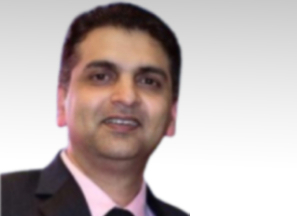Tubular Spine Endoscopy: Stenosis Surgery
This online endoscopic spine surgery lecture, presents all of the technical details and applications for tubular endoscopic stenosis surgery, including many case examples.
Enrol to View This Lecture
Access to all 15 Endoscopic Spine Lectures with our Endoscopic Spine Surgery Programme.
Lecturer: Dr. Arvind Kulkarni
Includes:
- Online Lecture Presentation
- Pre- and Post- Learning Assessments
- Additional Learning Materials (Standard Package only)
- Up to 3 CME Credits
Ref.ID: 10_6_UPDATE
What you will cover in this lecture
Learning Objectives
- Know and understand the techniques for muscle preserving surgery in stenosis
- Know the technical details in tubular spinal canal decompression surgery
- Know how to get successful results in tubular spine decompression surgery
Target Groups
Practicing Spine Surgeons
in Orthopaedic or Neurosurgical services for Continuing Education or recertification
Arvind Kulkarni, Dr
- Consultant Spine Surgeon - Mumbai Spine Scoliosis & Disc Replacement Centre
- Visiting Surgeon - Breach Candy & Saifee Hospitals, Mumbai
- Associate Professor- MUHS (Maharashtra University of Health Sciences)
- Director - SMISS (Society of Minimally Invasive Spine Surgery) - Asia Pacific
- Member - SRS {Scoliosis Research Society}
- Secretary - MISSI (Minimally Invasive Spine Surgeons of India)
- Executive Committee Member - MESS (Middle East Spine Society)
- Editorial Board Member - ASJ, JMISST, ISJ, JClin Orthop, IJSS
- Past Executive Committee Member - Association of Spine Surgeons of India (ASSI)
- Past Executive Committee Member - Bombay Orthopaedic Society (BOS)
- Past Fellowship Director - AO Spine-India
- Past - Assistant Editor - Indian Journal of Orthopaedics (IJO)
eccElearning Participation
Author
Lecture Presentation
Tubular Spine Endoscopy: Stenosis Surgery
Includes:
- Online Lecture Presentation
- Pre- and Post- Learning Assessments
- Additional Learning Materials (Standard Package only)
- Up to 3 CME Credits

Enrol to View This Lecture
Access to all 15 Endoscopic Spine Lectures with our Endoscopic Spine Surgery Programme.
Frequently Asked Questions
Q: What is an eccElearning Lecture like?
A: Each Lecture includes the Lecture Presentation, Additional Learning Resources, Pre-Learning Quiz and Lecture Assessment.
Each Spine Surgery Lecture is viewed online in video format and lasts from 20-45 minutes. The Lectures contain relevant additional learning resources (book chapters, research papers, surgical videos, master lecture videos, case reports, review articles, etc.), which are presented in context and viewable immediately for your convenience.
Lecture 5.1 is an invited Master Lecture and does not include the Quiz and Assessment components.
Q: How much time will a Lecture take?
A: Lecture presentations typically take 20-45 minutes to run. However, candidates are required to review the compulsory and recommended additional learning resources contained within the Lecture. The time taken to view the Lecture and review the additional resources is in the range 3-4 hours per Lecture.
Q: What kind of credits do I get from the Lecture?
A: Each Spine Surgery Lecture can confer up to 3 Continuing Medical Education (CME) credits, certified by European Accreditation Council for Continuing Medical Education (EACCME). The CME credits are awarded to the candidate on successful completion of the online Lecture. The number awarded depend on the number of additional learning materials available in a Lecture - premium versions of the Diploma and Modules include more material for each lecture, so confer more CME Credits.
Q: What payment methods are accepted?
A: All major credit and debit cards.
Q: What are CME Credits?
A: CME stands for Continuing Medical Education. You are awarded CME Credits for undertaking an approved course of medical education. Each Lecture that you complete successfully adds to your CME Credits total. All Lectures provided by eccElearning are accredited by the European Accreditation Council for Continuing Medical Education (EACCME), of the Union Européenne des Médecins Spécialistes (UEMS). You can print out your Certificate of CME Credits after the completion of any Course or Lecture.
Q: What do I do if I fail a Lecture Assessment?
A: You are permitted to retake a Lecture Assessment up to two times. The Lecture Assessment will be made available to you again 14 days after a failed attempt. If you’ve failed the Lecture Assessment three times, please get in contact with us to discuss your options.
Q: What courses does eccElearning provide?
A: We have the Diploma in Spine Surgery with Modules individually purchasable, and Spine Surgery Specialist Certificates in Radiology and Physiotherapy.









